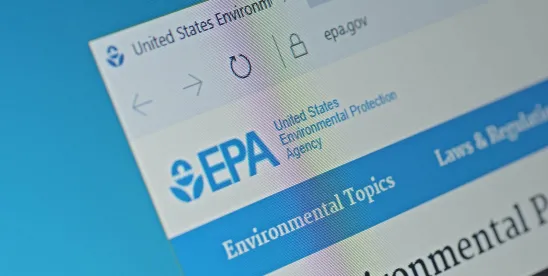As reported in our February 13, 2025, blog item, on January 17, 2025, the Biden U.S. Environmental Protection Agency (EPA) filed a notice of appeal of the September 2024 lower court decision finding that the plaintiffs established by a preponderance of the evidence that the levels of fluoride typical in drinking water in the United States pose an unreasonable risk of injury to the health of the public. Food & Water Watch v. EPA (No. 25-384). At that time, it was unknown how the Trump EPA would proceed. On July 18, 2025, EPA filed its opening brief in the U.S. Court of Appeals for the Ninth Circuit, arguing that the lower court’s decision should be reversed. EPA’s arguments include:
- Plaintiffs’ only relevant standing declarant has water that naturally contains fluoride, and Plaintiffs do not ask that the water utility remove naturally occurring fluoride. Thus, according to EPA, Plaintiffs’ injury is not caused by the addition of fluoride to drinking water, and no available remedy will redress it.
- EPA states that the U.S. District Court for the Northern District of California violated Section 21 of the Toxic Substances Control Act (TSCA) by “permitting Plaintiffs to rely on evidence not first presented to EPA in the petition and reviewed by EPA in denying the petition.” EPA notes that the court’s final decision “overwhelmingly relied on voluminous evidence that did not even exist at the time of the original petition, and which was therefore not presented in the petition to EPA.” According to EPA, “allowing the consideration of new evidence on a rolling basis throughout the proceedings is contrary to statutory text and frustrates the purpose of TSCA Section 21’s mandatory exhaustion requirement.” The approach “would undermine EPA’s ability to meet TSCA’s prioritization, risk-evaluation, and risk-management deadlines, and it would require EPA to proceed to risk management with a record insufficient to satisfy TSCA’s rigorous scientific and regulatory standards.”
- EPA claims that the court “abused its discretion by commandeering the trial and administrative proceedings in violation of the party-presentation principle.” Refusing to rule after the close of evidence at the first trial, and “the court’s determination to accumulate more evidence that it, rather than the parties, thought proper, transformed the court from a neutral arbiter into an advocate, and transformed TSCA Section 21 from a citizen-petition provision into a license for judicial rulemaking.”
EPA states that it “continues to disagree with the district court’s merits order purporting to apply TSCA’s scientific standards.” According to EPA, rather than asking the court to review the district court’s factual findings on the “technical, complex scientific issues,” it presents “more straightforward legal grounds for reversal.” Food & Water Watch’s answering brief is due September 17, 2025.




 />i
/>i
